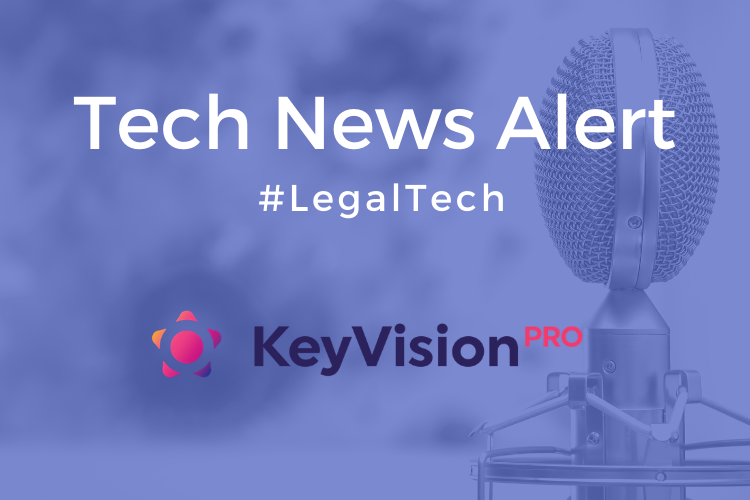
- legal tech
- legal tech news
The storm is not coming, it’s already here, this week’s legal tech new note. As the pandemic crisis challenges businesses all over the world, industries across the globe are still trying to wrap their minds around the fallout from the COVID-19 pandemic and the legal services industry is no exception. Law firms worldwide attempt to ramp up a series of easily digestible legal resources for clients struggling to understand their obligations in a climate dominated by lock-downs, some are joining tech companies in releasing innovation solutions in response to the pandemic and some are adopting technology tools. Many lawyers from all over the world are working from home during these difficult times, but most of them are facing a big issue – courthouses lack technology. Read all about it in this week’s news.
As the COVID-19 pandemic throws businesses into a tailspin, some law firms are developing dedicated legal tech tools to address rapidly changing client needs. Industries across the globe are still trying to wrap their minds around the fallout from the COVID-19 pandemic—and legal is no exception. As law firms attempt to ramp up a series of easily digestible legal resources for clients struggling to understand their obligations in a climate dominated by lock-downs and shelter-in-place orders, some are also joining tech companies in releasing innovation solutions in response to the pandemic. Discover more in this article.
The storm isn’t coming—it’s here and technology does not mean only evolution. Since the U.K. Solicitor Regulation Authority first allowed law firms under its jurisdiction to accept equity from non-lawyers back in 2012, a debate has raged whether states in the U.S. should do the same. The fallout from those decisions threatens to have huge ramifications for the legal profession, but when it comes to the way law firms are engaging with technology and disruption, non-lawyer ownership is more of an accelerant than the spark lighting a “Mission: Impossible”-style fuse. Read more on this subject in this Law.com article.
Firms are continuing to bring the technology in-house—whether their attorneys know about it or not, legal tech news observe. To be sure, knowing may be half the battle when it comes to persuading attorneys to become active participants in their firm’s ongoing efforts around innovation. But given the amount of time it takes law offices to vet and implement new solutions, it’s not hard to imagine attorneys losing track of the items being added to their toolbox. How the legal businesses from around the world are handling this process, read more on Law.com.
Many lawyers from all over the world are working from home during these difficult times. But many of them are facing a big issue – courthouses lack technology. Technology has made it easier for clients to stay connected virtually and not come into the office, but some of them are saying that they would have an in-person visit if a client prefers. Read more on this subject here.
As law firms settle into working remotely, keeping connected is turning out to be much more than just a technical challenge. And while many firms are finding ways to encourage communication and check in with employees during the COVID-19 pandemic, those contacts haven’t extended to everyone. A survey released this week by Chicago-based consulting firm The Red Bee Group found that the vast majority of lawyers and staff respondents—90%—were somewhat or very satisfied with the systems in pace for remote working at their firms or legal organizations. Discover more on this subject in this article.
We learn daily about examples of existing or potential algorithmic systems being used in the public decision making, from facial recognition surveillance for the purpose of establishing “good credentials”, to automated risk calculation models on welfare and other benefits that deter activists. Mozilla Foundation and Elements AI state that a public right to an explanation already exists when an algorithmic system informs a decision that has a significant effect on a person’s rights, financial interests, personal health or well-being. The truth is no one knows exactly how these can impact our freedoms and rights. Read more on this subject in this article.
Given the use of artificial intelligence by businesses and governmental entities, it won’t be long before discovery is sought into the operation and results of an AI tool. In August 2019, the American Bar Association House of Delegates adopted a resolution that urged courts and attorneys to “address the emerging ethical and legal issues” related to the use of AI. Discover what legal experts from big companies think on this subject in this article from Bloomberg Law.
For some, the journey into law isn’t a straight line. Five pioneering lawyers who have broken the mold and brought about change within their respective fields delivered inspiring TED-style talks during ‘The Pioneers’ event, a collaboration created to mark the launch of Verdict magazine. Read more here.
KeyVision is the work management platform legal teams use to run an efficient and profitable business

